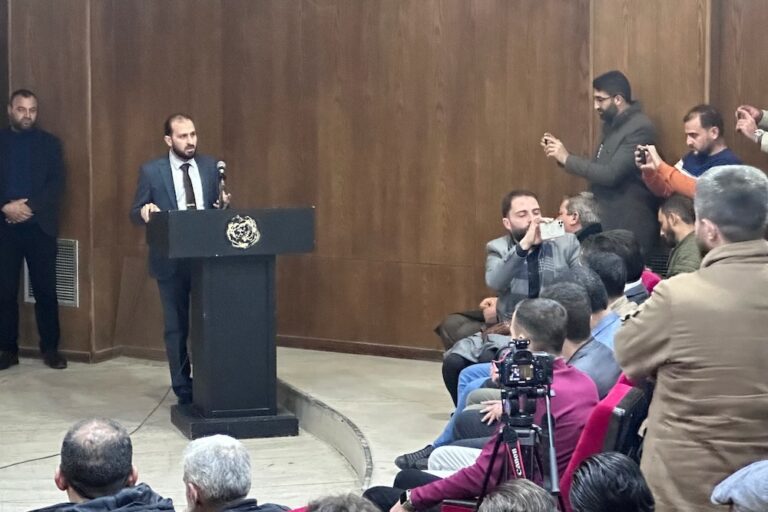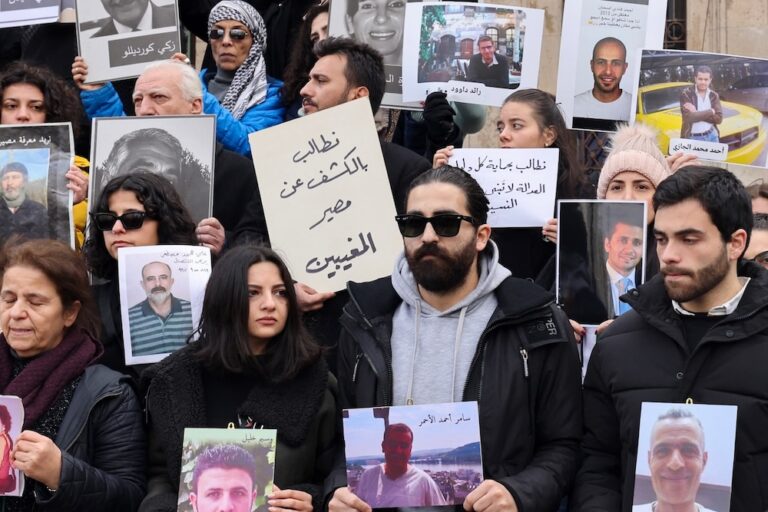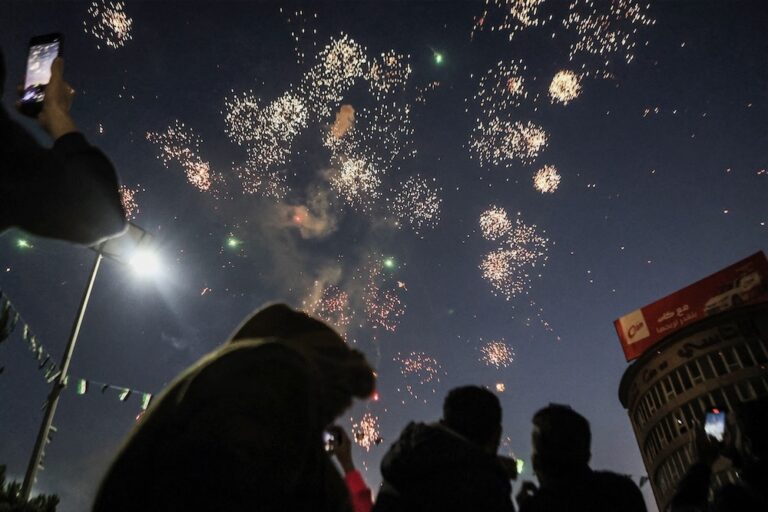(RSF/IFEX) – Detained journalist and writer Michel Kilo was taken before a military prosecutor in Damascus on 6 March 2007 and accused of inciting fellow inmates in Adra prison, near Damascus, to sign the “Beirut-Damascus, Damascus-Beirut” joint statement, which he himself signed in May 2006 and for which he is being prosecuted by a criminal […]
(RSF/IFEX) – Detained journalist and writer Michel Kilo was taken before a military prosecutor in Damascus on 6 March 2007 and accused of inciting fellow inmates in Adra prison, near Damascus, to sign the “Beirut-Damascus, Damascus-Beirut” joint statement, which he himself signed in May 2006 and for which he is being prosecuted by a criminal court.
“The Syrian regime is hounding Kilo while trying to deny the existence of prisoners of conscience,” Reporters Without Borders said. “The judicial authorities already blocked his release on bail by bringing new charges. Now they are using a report of uncertain origin to bring a further charge against him.”
Reporters Without Borders has been told that the new charge is based on a report written last July by an informer infiltrated into Adra prison. He apparently claimed that Kilo was promoting the “Beirut-Damascus, Damascus-Beirut” statement to other detainees and encouraging them to rise up against the regime.
The Damascus military prosecutor’s office has charged him under article 150 of the code of military judicial procedure, which provides for a five-year prison sentence for anyone “publishing a political article or giving a political speech with the aim of making propaganda for a political party, organisation or group.”
During the fourth hearing on 5 March, during Kilo’s trial before a criminal court in Damascus, Kilo defended the “Beirut-Damascus, Damascus-Beirut” statement, arguing that it aimed to further the interests of both Syria and Lebanon at the same time. When asked by the judge, he said he knew what he was doing when he signed it. Several other people who signed the statement were arrested at the same time as Kilo and released after withdrawing their signatures. The next hearing in this trial is scheduled for 27 March.
President Bashar Al-Assad is regarded by Reporters Without Borders as one of the world’s 32 press freedom predators. When asked last month about Syrian political prisoners by a journalist with the US television network ABC, Assad replied: “This kind of prisoner does not exist. In Syria we have two sorts of prisoners, those who are involved in terrorist attacks and those who have broken Syria’s laws.”
Reporters Without Borders established a system of sponsorship 16 years ago in which international media are encouraged to adopt imprisoned journalists. More than 200 news organisations, journalists’ associations, press clubs and other entities throughout the world are currently supporting journalists by regularly calling on the authorities to release them and by publicising their cases.
Kilo has been adopted by “Le Pélerin” (France), “France Bleu Azur” (France), “Varios Foros” (Spain), the Almería Press Association (Spain) and the Calafell City Hall (Spain).


